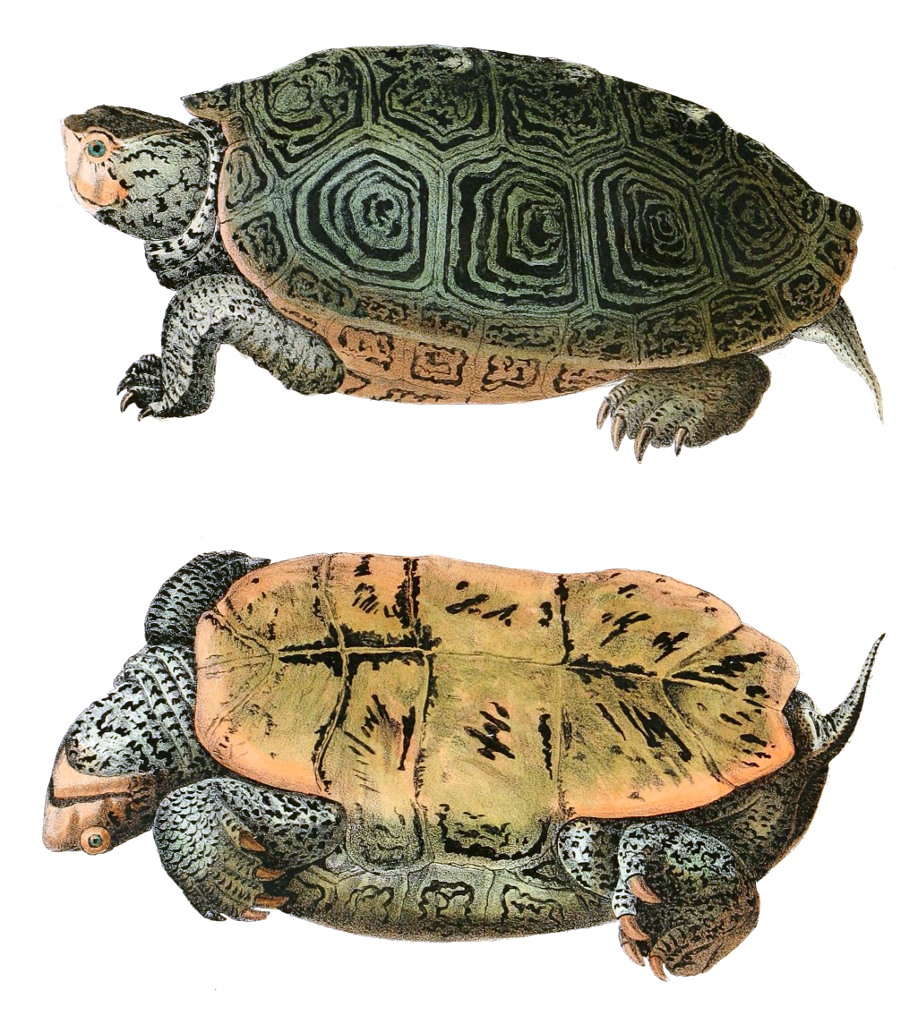Wednesday, January 27, 2016
Diamondback Terrapin Harvest Season Closed
Due to continued concerns about harvest pressures on northern diamondback terrapins in state coastal areas, DEP Commissioner Bob Martin has signed an Administrative Order immediately closing the remaining two months of the commercial harvest season.
In 2002, the Northern diamondback terrapin was listed as a species of special concern in New Jersey, but this status has not been officially adopted under the Endangered Species Conservation Act and terrapins are still considered to be a game species in NJ with an open season from November 1 to March 31
The Division of Fish and Wildlife has been working with the Marine Fisheries Council, neighboring states, the U.S. Fish and Wildlife Service, and terrapin experts to develop management strategies to enhance protection of the terrapins in order to sustain the species in New Jersey.
Northern Diamondback Terrapins (Malaclemys terrapin terrapin) are native to New Jersey. They inhabit coastal salt marshes and estuaries along the Atlantic Coast and Delaware Bay. They live exclusively in brackish water (a mixture of both salt and fresh water).
Diamondback terrapins, so named for the diamond-shaped patterns on its shell, are more closely related to freshwater turtles than marine turtles, and spend their entire life cycle in coastal marshes. They are an important part of the ecosystem, feeding on snails that can overgraze marsh grasses, leaving them barren mudflats.
They are threatened by habitat loss, illegal trapping, mortality from being drowned in crab traps, and especially by road mortality as they cross busy roads.
Terrapins were once very common and used as a main food source of protein by Native Americans and then European settlers.
They were hunted so extensively that they almost faced species extinction by the early 1900s. They became a delicacy here and in Europe and were exported. During the Depression, demand fell off and the population was able to make enough of a recovery to avoid extinction.
In the past, commercial harvesting of terrapins in New Jersey was reported on a small-scale basis. But increased demand, particularly in Asian food markets, has put excessive pressure on the species.
In a 2014 incident, more than 3,500 terrapins were harvested from two locations in southern New Jersey to provide terrapins for an out-of-state aquaculture facility that raises them for overseas markets. More than 14,000 offspring of the wild adult terrapins were then exported to Asia.
For more information, see the DEP news release at http://www.nj.gov/dep/newsrel/2016/16_0004.htm
Subscribe to:
Post Comments (Atom)


No comments:
Post a Comment